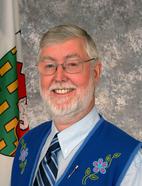Thank you, Mr. Speaker. I’d like to begin with congratulations to you, Mr. Speaker, and to our new Premier and Cabinet-about-to-be for their selections to these key leadership positions. I know that these responsibilities are not lightly earned and it is clear that they bring many skills; you bring many skills and much experience and knowledge to these jobs.
I am highly honoured to be representing and working on behalf of the people and interests of Weledeh in the Northwest Territories. I thank the voters and have pledged my dedication to them. I express appreciation to all those who contributed to the Weledeh election campaign by putting their names forward to run for election. I know much better now how much of a contribution to our society and our democracy this represents.
I thank my family, in particular my wife, Marianne, who kept me healthy and sane, as she promised she would. To my mother, Barb Bromley, who participated in many ways; to my sister, Maxine Avery; my brother, Chris Bromley, and his wife, Cleo; and all the other members of my family, my nephews and nieces and brothers and so on, all of whom reside in Weledeh.
Mr. Speaker, I’m humbled by the amazing support, skills, time and contributions that I received from my campaign team. I recognize that they gave up considerable time from family and personal lives, from our fall harvesting season, and time from their working lives for my campaign.
Weledeh has an incredible diversity of cultures. I would particularly like to thank my translators: Mary Rose Sundberg, Mary Rose Dryneck, Bernadette Martin, France Benoit, Batiste Foisy, and Louis Azzolini. Through their good work, my Weledeh campaign served to build community and relationships using local skills and local resources. Many local businesses participated. Even our buttons were manufactured by a budding entrepreneur in Weledeh. Events in the riding featured local food, like white fish, and local entertainment by skilled musicians. This was a wee demonstration of sustainable living.
In closing, I’m looking very much forward to working with all Members of this House. Thank you.
---Applause
